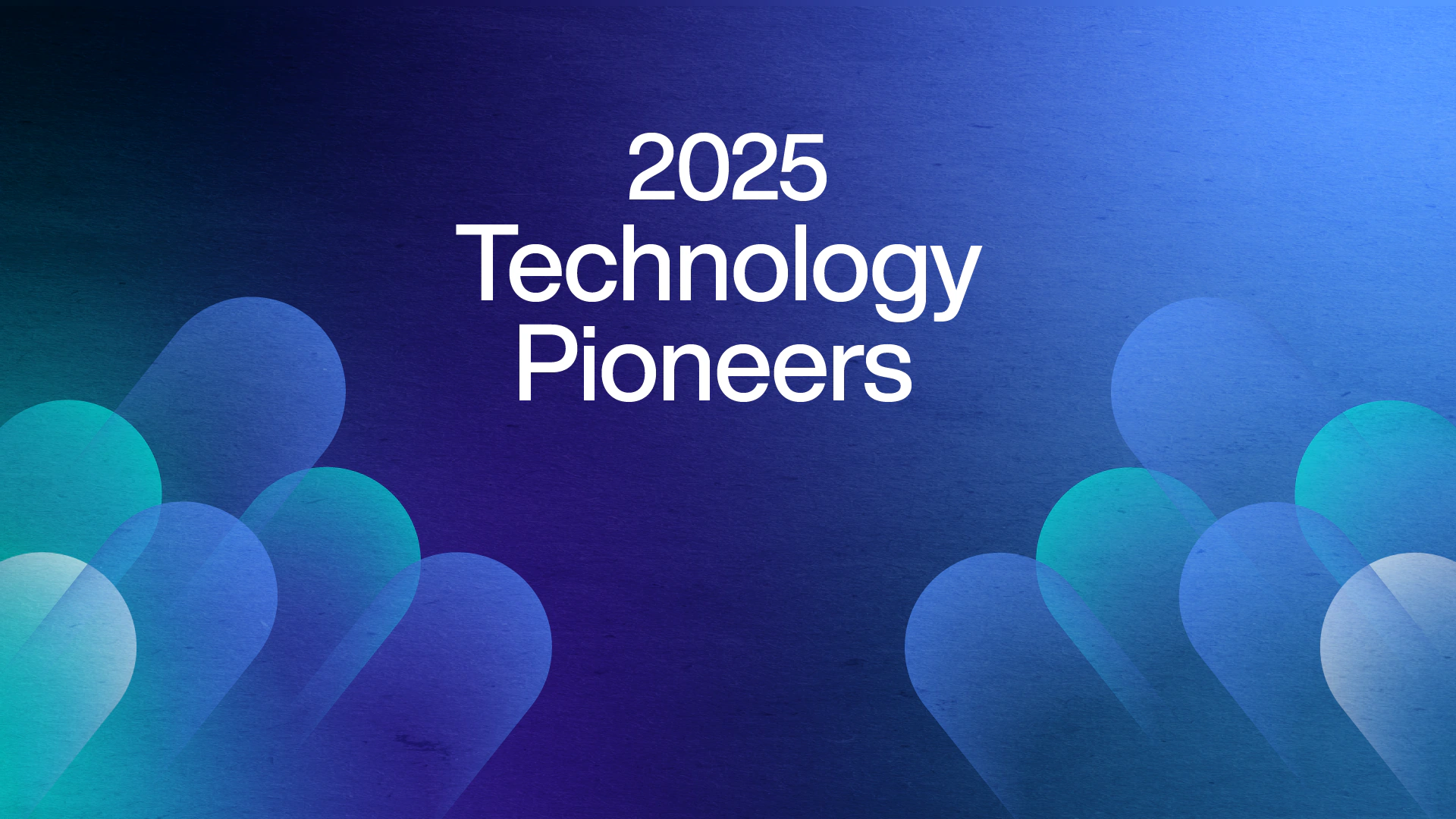The World Economic Forum has announced the 100 companies joining its Technology Pioneers Community in 2025.
These companies reflect a global surge in emerging technologies, from smart robotics and spatial AI to scalable quantum solutions.
Read more about the 2025 Technology Pioneers here.
세계경제포럼, 2025년 6월 23일 게시
Michelle Mormont
Lead, Innovator Communities, World Economic Forum
David Elliott
Senior Writer, Forum Stories

What do Google, Dropbox, PayPal and SoundCloud have in common? Apart from being technology companies that have disrupted industries with products and services millions of people now rely on, they are also all alumni of the World Economic Forum’s Technology Pioneers programme.
Celebrating its 25th anniversary this year, the community helps early-stage start-ups with technologies that can positively shape our future to grow. Since 2000, the initiative has recognized more than 1,200 companies, many of which have gone on to shape industries.
In 2025, the Forum has selected 100 start-ups from 28 countries to join the community.
The cohort reflects wider shifts in the innovation landscape with many of the companies using artificial intelligence (AI) to scale using fewer resources. And it stands out for its concentration of companies working to address global challenges by developing breakthrough technologies, including advanced robotics, spatial AI and more accessible quantum computing applications.
Innovation among the 2025 Technology Pioneers
“There has never been a more exciting time to dive headfirst into tech innovation,” says Verena Kuhn, Head of Innovator Communities at the Forum. “But no one gets far alone – you need a community to move your mission forward.”
The following companies offer a glimpse of the innovative solutions among the 2025 cohort, and some of the key areas that they are addressing.
Circular economy
Whether it’s emissions or food waste, reducing the amount created is vital to addressing our impact on the climate. Companies in this year’s cohort are developing solutions to help deal with what’s left. Rubi Laboratories uses enzymes to capture CO2 and convert it into cellulose, which can be used for textiles. Hyfé is helping food producers get more value from crops with a refining process that releases chemicals from food waste to create products that can be sold in industries; these include chemicals and personal care.
Cybersecurity
AI is transforming sectors from agriculture to healthcare and finance to manufacturing, and it is helping many of the start-ups in this year’s cohort create sophisticated products and services more efficiently. At the same time, AI-enabled tools are predicted to increase the volume and heighten the impact of cyberattacks.
Cutting-edge start-ups are working to stem the tide, including BforeAI, a company founded by a former Formula 3 driver that uses predictive analysis to detect unusual behaviour and block malicious campaigns. Reality Defender, meanwhile, is addressing the growing issue of deepfakes, which are being used to exploit people and technology, by securing communication channels against deepfake impersonations in real-time.
Food and water
Balancing food security and access to safe drinking water with the food sector’s impact is a global challenge – food is responsible for one-third of global greenhouse gas (GHG) emissions and more than 70% of freshwater consumption. Rice, for example, supplies around half the global population with food but accounts for about 48% of GHG emissions from croplands – and is a water-intensive crop. Rize has created a data-driven platform to help farmers in Southeast Asia switch to more sustainable practices, such as letting rice fields dry before re-flooding rather than keeping them submerged. This cuts water use by 30% while reducing methane emissions. Fermata is using data science to automatically detect pests and diseases in crops, helping farmers reduce losses and increase yields.
Next-generation energy
While clean energy innovation is advancing rapidly, meeting climate targets demands it moves faster, according to the International Energy Agency (IEA). Many of 2025’s Technology Pioneers are working on solutions in this area. Exowatt has created modular energy systems, which can be rapidly deployed, that capture solar energy as high-temperature heat which is stored and converted on demand. Sweetch Energy is creating round-the-clock clean power from osmotic energy – which harnesses the energy released when freshwater mixes with salt water. The company says osmotic power, which is available in deltas and estuaries but can also be generated from industrial resources, has the potential to supply more than 15% of global electricity demand.
Quantum computing
Quantum computing has the potential to solve complex statistical problems that are beyond the capabilities of computers today, completing tasks that once might have taken long periods of time millions of times faster. EleQtron develops quantum computing hardware that traps ions and manipulates them with microwaves. Haiqu, meanwhile, is developing software for quantum computers.
Discover
What is the World Economic Forum doing about the Fourth Industrial Revolution?
Space
With the space economy forecast to continue to grow rapidly, many start-ups are exploring the potential of looking out of this world to help solve some of our most pressing issues.
Starcloud is addressing the increasing space and power demand of data centres by putting them in space. The company says that, as costs fall, space-based data centres will benefit from 24/7 solar energy and could be rapidly deployed to gigawatt scale. Agnikul is 3D-printing rockets to fulfil its stated mission of bringing space within everyone’s reach. Its launch vehicles will be capable of taking micro and nanosatellites to low-earth orbit. Astroforge, meanwhile, is building spacecraft that can mine asteroids to make critical minerals more accessible to humanity.
The 2025 cohort will contribute cutting-edge insights and expertise to the Forum’s global initiatives over the next two years and help scale their impact. You can explore the full list of 2025 Technology Pioneers here and read more about the community here.




